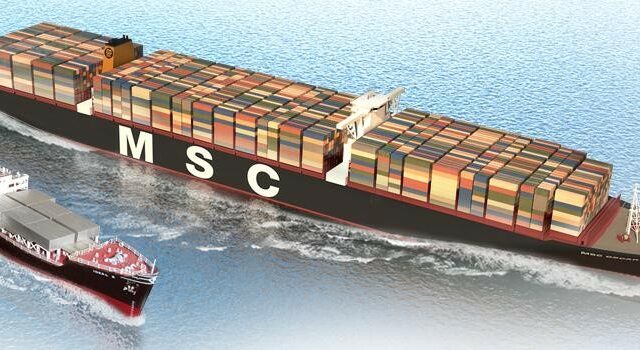
Fueling Strategies for Sustainable Road Freight Operations
In the dynamic landscape of road freight operations, achieving sustainability and fuel efficiency is more critical than ever. This article delves into innovative strategies that not only enhance fuel efficiency but also pave the way for a sustainable future in logistics.
The Imperative of Fuel Efficiency
Efficient fuel utilization is the linchpin of a successful road freight operation. Embracing cutting-edge technologies, such as AI-driven route optimization and aerodynamic enhancements, is pivotal. By integrating these technologies, companies can significantly reduce fuel consumption, lowering both costs and carbon footprints.
Green Technologies Transforming the Industry
Electric and Hybrid Vehicles
The adoption of electric and hybrid vehicles stands as a transformative move toward sustainability. These vehicles not only reduce emissions but also cut down on fuel costs. With advancements in battery technology, the road freight industry is witnessing a paradigm shift toward eco-friendly transport solutions.
Smart Fleet Management Systems
Implementing smart fleet management systems is another game-changer. These systems optimize routes, monitor vehicle conditions, and enhance overall operational efficiency. By leveraging real-time data, companies can make informed decisions, ultimately leading to fuel savings and increased productivity.
Sustainable Fuel Alternatives
Biofuels
Exploring sustainable fuel alternatives, like biofuels, is crucial. Derived from renewable resources, biofuels offer a cleaner and greener option for powering freight vehicles. The industry’s gradual transition to biofuels contributes to a significant reduction in greenhouse gas emissions.
Hydrogen Fuel Cells
Hydrogen fuel cells are emerging as a promising solution for sustainable freight operations. These cells produce electricity through a chemical reaction between hydrogen and oxygen, emitting only water vapor. Incorporating hydrogen fuel cells into the logistics network is a stride towards a more sustainable and efficient future.
Operational Best Practices
Efficient Route Planning
Optimizing routes through advanced algorithms minimizes fuel consumption. Companies employing sophisticated route planning tools can significantly reduce miles traveled, fuel usage, and, consequently, operational costs.
Load Optimization
Efficient load distribution is paramount. Employing advanced load optimization techniques ensures that each vehicle operates at its maximum capacity, minimizing the number of trips and, in turn, reducing fuel consumption.
Collaborative Industry Initiatives
Collaboration for Sustainable Practices
Industry-wide collaboration is essential for driving sustainability. Establishing partnerships to share best practices, technologies, and innovations fosters a collective effort to reduce the environmental impact of road freight operations.
Government Incentives and Policies
Governments play a pivotal role in promoting sustainable practices. Incentivizing companies that adopt green technologies and enforcing policies that encourage eco-friendly approaches are crucial steps toward a more sustainable road freight industry.
Conclusion
As we navigate the future of road freight operations, fuel efficiency takes center stage. By implementing a combination of green technologies, operational best practices, and collaborative initiatives, the industry can embark on a journey towards sustainability.
Fueling efficiency in road freight operations is not just a necessity but a responsibility. By embracing sustainable strategies, adopting green technologies, and fostering collaboration, the industry can pave the way for a future where logistics harmonizes with the environment. Let’s drive towards a sustainable tomorrow.
FAQs
Q: How do electric vehicles contribute to fuel efficiency in road freight operations? Electric vehicles drastically reduce dependence on traditional fuel sources, relying on electricity for power. This not only reduces carbon emissions but also lowers overall fuel costs for freight companies.
Q: What role do biofuels play in sustainable road freight operations? Biofuels, derived from renewable sources, serve as an eco-friendly alternative to conventional fuels. Their use in road freight operations helps cut down on greenhouse gas emissions, promoting a greener and more sustainable industry.
Q: How can smart fleet management systems enhance fuel efficiency? Smart fleet management systems use real-time data to optimize routes, monitor vehicle conditions, and streamline operations. By making data-driven decisions, companies can achieve significant fuel savings and operational efficiency.
Q: What are the benefits of hydrogen fuel cells in the road freight industry? Hydrogen fuel cells produce electricity with only water vapor as a byproduct. Incorporating these cells into freight vehicles reduces environmental impact, making it a sustainable and efficient alternative to traditional fuel sources.
Q: How does efficient route planning contribute to fuel savings in road freight operations? Efficient route planning minimizes unnecessary mileage, leading to reduced fuel consumption. By leveraging advanced algorithms, companies can optimize routes and enhance fuel efficiency in their road freight operations.






